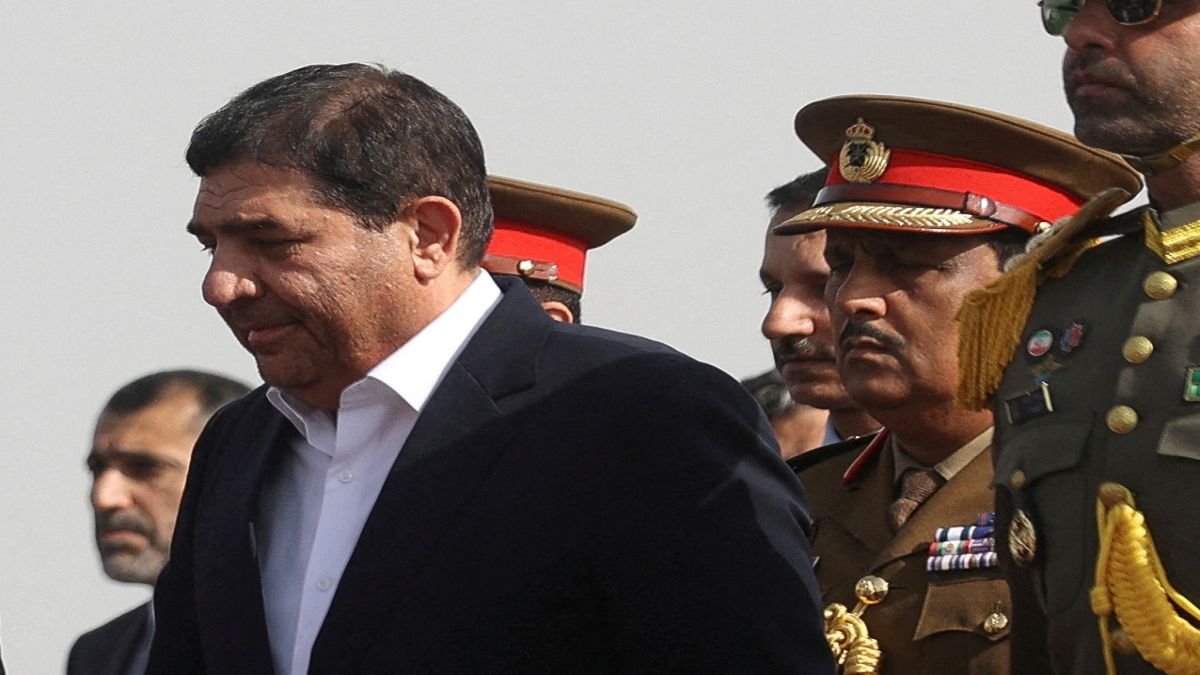Iran is grieving. Their president and foreign minister, Ebrahim Raisi and Hossein Amir-Abdollahian respectively, have died after a helicopter carrying them crashed in the mountainous region bordering Azerbaijan.
“President Raisi, the foreign minister and all the passengers in the helicopter were killed in the crash,” a senior Iranian official told Reuters, asking not to be named because of the sensitivity of the matter.
Raisi’s sudden demise comes at a very critical time for Iran — it struggles with internal dissent, and its ties with Israel are deteriorating even further.
Catch all the Live updates from Ebrahim Raisi’s death HERE
Now, many are asking: what comes next? Who takes over the responsibilities of president after Raisi’s death?
What the rules say about Iranian president dying in office?
Iran’s constitution states that the first vice president will take over the duties and responsibilities of the president in case a president dies while in office. Now, that state media has reported Raisi’s death , First Vice President Mohmmad Mokhber, 68, will take over presidential duties after receiving a nod from Iran’s Supreme Leader, Ayatollah Khamenei.
Moreover, article 131 of Iran’s constitution states that a council consisting of the first vice president, the speaker of parliament and the head of the judiciary must arrange an election for a new president within a maximum period of 50 days.
Impact Shorts
More ShortsPresently, Iran’s next presidential election was due for 2025. However, now with Raisi’s demise and the constitutional rules, it is expected to be held by early July.
Who now takes over from Raisi?
As the Iranian constitution states, the first Vice President Mohmmad Mokhber will take over presidential duties from Raisi. The 69-year-old, who will assume presidency in an interim capacity, is a seasoned political figure with close ties to Supreme Leader Ali Khamenei and wields quite a significant amount of influence and power within the Iranian regime.
Born on 1 September 1955, Mokhber, hailing from Khuzestan Province, comes from a religious family; his father was a cleric. Mokhber received his primary education in Dezful and Ahvaz, and later obtained a doctorate in international law. Mokhber served as an officer in the Islamic Revolutionary Guard Corps’ (IRGC) medical corps during the Iran-Iraq War in the ’80s.
Later, in the 1990s, he worked as the CEO of Dezful Telecommunications and was then appointed as the deputy governor of the Khuzestan Province.
While serving at the Mostazafan Foundation and Sina Bank, he gained great managerial experience and was able to form relationships with religious and political elites in the Supreme Leader’s patronage network. He also developed contacts in the Office of the Supreme Leader, which has direct control over the Mostazafan Foundation.
Since 2007, Mokhber served as the CEO of the Execution of Imam Khomeini’s Order (EIKO), which also goes by the name of Setad. According to reports, it is a multi-tiered, state-run foundation under the direct control of Iran’s Supreme Leader Ayatollah Ali Khamenei. Setad performs a wide range of services from building schools and hospitals, operating telemedicine to reach rural areas in Iran, producing pharmaceuticals, launching construction projects, job creation, and other large aid and assistance programs.
In 2010, the European Union included Mokhber on a list of individuals and entities it was sanctioning for alleged involvement in “nuclear or ballistic missile activities”. Two years later, it removed him from the list. In 2013, the US Treasury Department also added Setad and its 37 companies to a list of sanctioned entities.
It was in 2021 that Mokhber stepped down as head of Setad when he was appointed as Iran’s first vice president. In fact, he was Raisi’s first personnel selection after taking office in early August 2021.
As first vice president, Mokhber has been engaged in Iran’s foreign policy. In July 2022, he met Syria’s foreign minister in Tehran. He renewed Iran’s optimistic vows that Iran would soon expand its economic integration with Syria. And in October 2023, he was, according to a Reuters report, a part of a team of Iranian officials who visited Moscow and agreed to supply surface-to-surface missiles and more drones to Russia’s military.
Who’s in the running for president?
While Mokhber will be interim president, it will be interesting to see who could assume the post following the elections, which have to be conducted within 50 days now. While Mokhber could be a top contender, he isn’t a popular figure among the people. In fact, as Bloomberg reports, as president, Mokhber would at least need to have the appearance of having authentic support from the masses.
Besides Mokhber, there’s also Parliamentary Speaker Mohammad Baqer Qalibaf, who has long harboured presidential ambitions. However, Qalibaf faces a history of corruption allegations, making the road to the top office a bit more difficult.
With inputs from agencies


)

)
)
)
)
)
)
)
)



